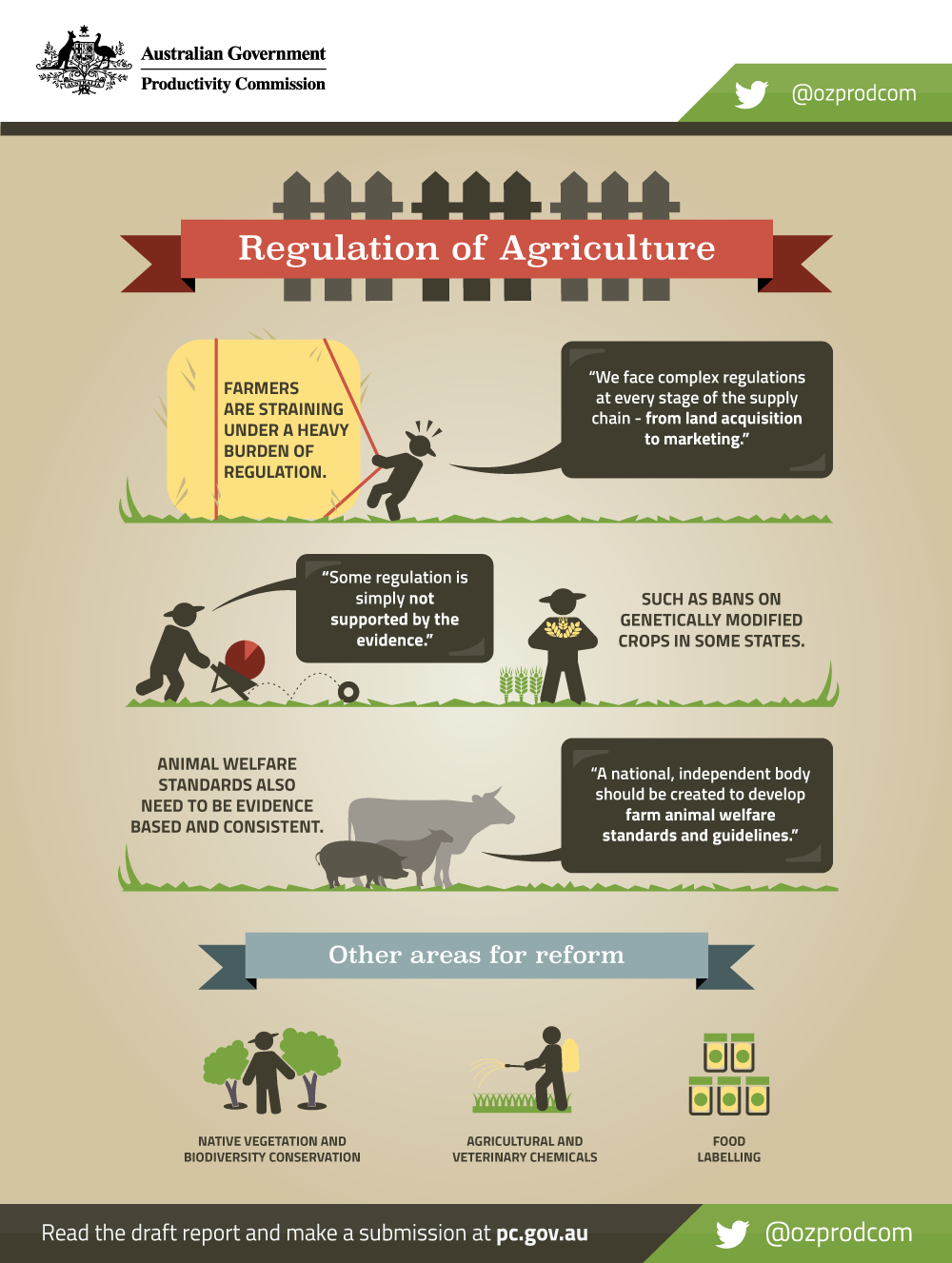You were invited to examine the draft report and to make written submissions by 18 August 2016.
Please note: This draft report is for research purposes only. For final outcomes of this inquiry refer to the inquiry report.
You were invited to examine the draft report and to make written submissions by 18 August 2016.
Please note: This draft report is for research purposes only. For final outcomes of this inquiry refer to the inquiry report.
The Productivity Commission released their draft report on Agriculture Regulation today.
'Farmers are straining under a heavy burden of regulation. They face complex regulations at every stage of the supply chain — from land acquisition to marketing. These are imposed by multiple agencies across three levels of government,' said Commissioner Paul Lindwall.
'The resulting duplication, inconsistency and redundancy this creates in areas such as heavy vehicle and road use regulation should be addressed promptly,' said Commissioner Paul Lindwall.
The Commission is also calling for regulation to be better informed by the evidence.
'Some regulation is simply not supported by the evidence, such as bans on genetically modified crops in some states. The recent tightening of the foreign investment regime for agriculture by the Australian Government also lacks a sound policy justification. These regulations are not in the public interest and should be unwound,' said Commissioner Paul Lindwall.
'Farm animal welfare standards also need to be consistent and based on the evidence, including the scientific evidence on animal welfare and community values. A national, independent body should be created to deal effectively and comprehensively with the evidence in this area and develop nationally consistent farm animal welfare standards,' said Commissioner Ken Baxter.
'International evidence should be used more when assessing agricultural and veterinary chemicals. This would reduce the cost and time taken to grant domestic registration,' said Commissioner Ken Baxter.
Native vegetation and biodiversity conservation regulations need improving.
'Conservation of the natural environment is important to the community, but regulations must give due weight to economic and social factors, and be proportionate to the risks posed,' said Commissioner Ken Baxter.
The report is a draft and people can make submissions through the Productivity Commission website. Public hearings will be held in August 2016.

'We face complex regulations at every stage of the supply chain - from land acquistion to marketing.'
'Some regulation is simply not supported by the eviidence.'
'A national, independent body should be created to develop farm animal welfare standards and guidelines.'
Read the draft report and make a submission.